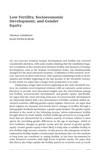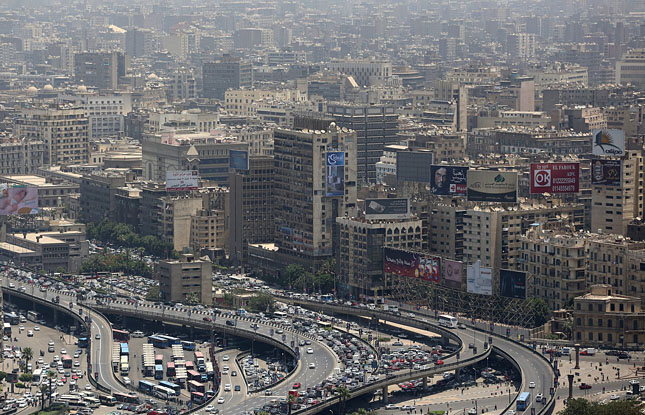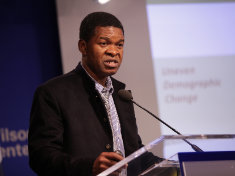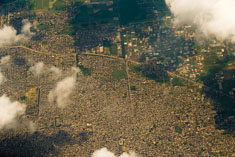-
Report: Reducing Risks from Rapid Demographic Change
›October 27, 2016 // By Cara Thuringer
The world is undergoing a period of demographic transition which presents both opportunities and challenges for governments. A report by the Atlantic Council’s Mathew Burrows, formerly of the National Intelligence Council, Reducing the Risks from Rapid Demographic Change, examines the changes in population structures across high-, upper-middle-, lower-middle-, and low-income countries.
-
Venezuela’s Turn? Age Structure and Liberal Democracy in South America
›January 21, 2016 // By Richard CincottaVenezuela seems suspended at a critical juncture. Following national elections in December, the opposition Democratic Unity Roundtable was set to occupy two thirds of the 167-seat National Assembly, an upset that would reduce the late Hugo Chávez’s United Socialist Party to a distant second place for the first time and given opposition legislators the power to enact sweeping political changes.
-
The “Gender-Equity Dividend,” and the Education Effect on Climate Change Adaptation and Mitigation
› By comparing “first wave” developing countries, like Sweden and the United States, to “second wave” developers, like South Korea and Japan, Thomas Anderson and Hans-Peter Kohler of the University of Pennsylvania seek to explain why countries that underwent socioeconomic development in the first half of the 20th century have slightly higher fertility levels than those that developed later. Despite “both sets of countries attaining high income and generally low fertility, contemporary gender norms and levels of gender equity differ between them,” write Anderson and Kohler in a new study in Population and Development Review.
By comparing “first wave” developing countries, like Sweden and the United States, to “second wave” developers, like South Korea and Japan, Thomas Anderson and Hans-Peter Kohler of the University of Pennsylvania seek to explain why countries that underwent socioeconomic development in the first half of the 20th century have slightly higher fertility levels than those that developed later. Despite “both sets of countries attaining high income and generally low fertility, contemporary gender norms and levels of gender equity differ between them,” write Anderson and Kohler in a new study in Population and Development Review. -
As Droughts, Floods, Die-Offs Proliferate, “Climate Trauma” a Growing Phenomenon
›September 9, 2015 // By Carley Chavara
According to recent polling, climate change is seen as the single most threatening international challenge around the world, and there’s evidence that all that worry is taking a psychological toll. Adding to droughts, floods, extreme weather, and die-offs, psychologists are observing higher levels of anxiety, depression, and post-traumatic stress disorder in certain areas and professions. Even people who do not actively stress about global warming or view it as a major threat may still suffer psychological trauma from its effects.
-
Running Faster to Stand Still: New UN Population Projections Point to Challenges Ahead for SDGs
›July 29, 2015 // By Schuyler Null
In most parts of the world, population growth is stagnant, even declining slightly, part of a decades-long and nearly universal shift towards smaller, healthier families. But the places where growth is still rapid continue to defy expectations about when they will “catch up.”
-
What Paul Ehrlich Missed (and Still Does): The Population Challenge Is About Rights
›In 1968, Stanford University biologist Paul Ehrlich predicted hundreds of millions would starve to death over the next decade, many of them Americans, and the world would generally decline into chaos in his book The Population Bomb.
-
Parfait Eloundou-Enyegue: Generational Inequality in the Sahel a Security Risk
›
Rapid population growth, which many Sahelian countries are experiencing, is often associated with an increased risk of sociopolitical violence. But in this week’s podcast, Cornell University Professor Parfait Eloundou-Enyegue argues there is another factor related to demographic change that governments and development organizations should account for: inequality.
-
Roger-Mark De Souza Talks Global Population Dynamics on ‘Radio Times’
›
From aging populations in East Asia, Europe, and the United States to youth in sub-Saharan Africa, changing demographics have implications for the entire global community, said Roger-Mark De Souza, director of population, environmental security, and resilience at the Wilson Center in an April 20 interview for WHYY’s Radio Times in Philadelphia.
Showing posts from category aging.









